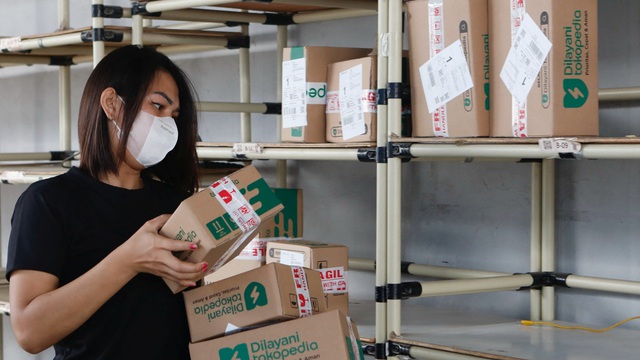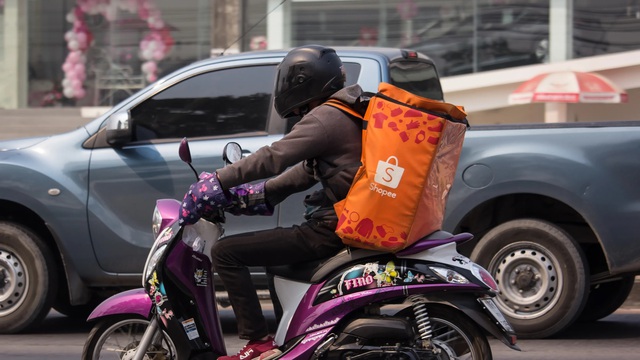Rising Commissions Squeeze Merchants’ Margins
Southeast Asia’s largest e-commerce platforms, including Shopee, Lazada, and TikTok Shop, are charging sellers higher fees as they face pressure to boost profits in an increasingly competitive environment.
Increasing commission fees from merchants has been a key focus for regional platforms like Shopee and Lazada, especially as sales growth slows post-pandemic, with shoppers returning to brick-and-mortar stores.

On September 16, Indonesia’s Tokopedia raised its commission fees for merchants by up to 10% of the selling price, depending on the product category and type of seller, up from a previous maximum of 6.5%.
Also this month, Singapore-based Sea’s Shopee increased commission fees for some sellers in Indonesia to a range of 4.25% to 8%, up from 3.5% to 6.5% previously, according to HSBC Global Research.
Tokopedia and Sea did not elaborate on their decisions.
“Merchants will not be happy to see their profit margins squeezed, but they may not have much choice,” said Kai Wang, a senior analyst at Morningstar.
In recent months, the platforms have been adjusting their fee structures. When Shopee raised commission fees in Malaysia in July, Lazada and the TikTok Shop e-commerce service quickly followed suit.
But the move has prompted some sellers to seek alternatives. A Malaysian trader who sold roasted nuts on Shopee and Lazada for two years and one year on TikTok Shop, respectively, said he decided to shut down all his online stores three months ago, citing higher fees and stricter delivery timeframes.
He felt “exhausted” by shrinking profit margins and higher capital costs. He now plans to open his own online store.
In Singapore, a 35-year-old clothing seller on TikTok Shop said he would remain on the platform because it could be “costly” and “time-consuming” to set up a separate channel, handle marketing, and deliver products. “That’s the price we have to pay to get known,” he said.

How Much Impact?
Despite some seller dissatisfaction, analysts expect the higher fees will not significantly affect the overall situation.
“We may see platforms changing tactics amid a shifting competitive landscape, but in the short term, the commission hike will not affect transactions or the survival of merchants on the platform,” said Jianggan Li, CEO of Singapore-based consulting firm Momentum Works.
Since the 2010s, companies like Tokopedia, Lazada, and Shopee have competed by offering deep discounts, attractive promotions, and low commission fees to gain traction in the crowded market, quickly becoming the dominant players in the region.
The pandemic shift, along with a higher interest rate environment, forced operators to quickly cut spending and staff numbers. This was done to improve net profits as investors began shunning money-losing tech companies after years of burning cash.
Competition also intensified when TikTok launched its e-commerce service in Southeast Asia in 2021, leveraging its popular live-streaming function and large customer base while offering lower commission fees, leading to rapid growth, especially in the beauty and fashion industries.
The new entrant forced Shopee, the region’s largest player, to retaliate by investing in similar live-streaming functions to retain market share. Tokopedia, which trails Shopee and Alibaba’s Lazada, found itself in a tougher position as it tried to keep up and ended up agreeing to sell 75% of its stake to TikTok in December last year. The acquisition was completed this year.
According to Momentum Works, in 2023, Shopee maintained its leading position with 48% market share in terms of total gross merchandise volume in the region, followed by Lazada with 16.4%, TikTok with 14.2%, and Tokopedia with 14.2%.
In a recent move, Shopee partnered with YouTube to launch an online shopping service in Indonesia, where users can purchase goods featured on the live-streaming website through Shopee links.
The two companies plan to expand this partnership to other markets such as Thailand and Vietnam.
“As many similar products are being offered, there isn’t much differentiation between competitors,” Wang from Morningstar told Nikkei Asia.
“Competition can easily flare up again when a platform has high fees, and rivals will then come in with low-price offerings, and the pressure continues.”
The Odyssey Cup Dota 2 Southeast Asian and Oceanic Championship
Six representatives from Southeast Asia and two from Oceania will compete for a total prize pool of $20,000.


















